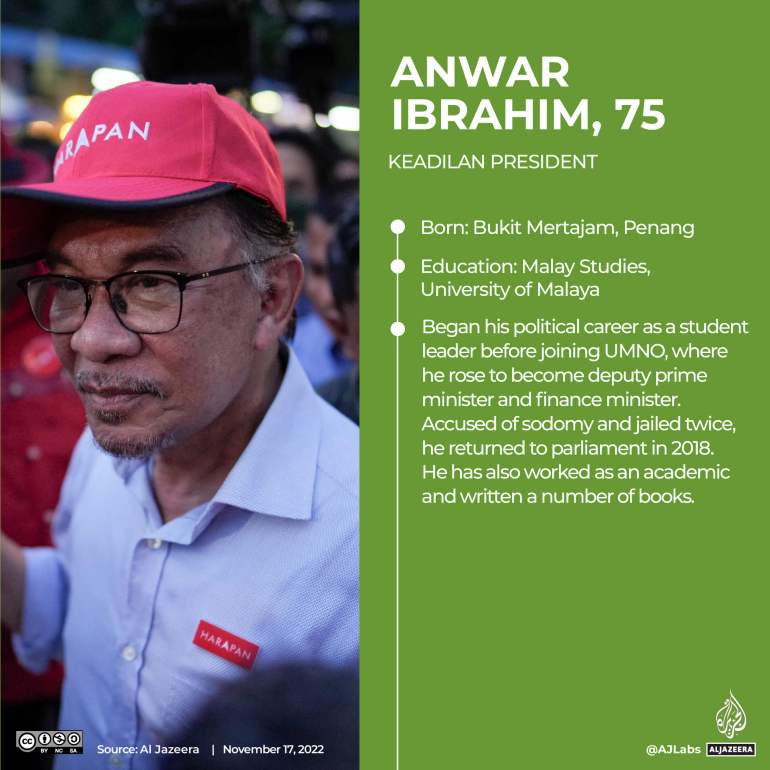Infographic: All you need to know about Malaysia’s elections
Millions of Malaysians will elect the country’s 15th parliament and the prime minister for the next five years.
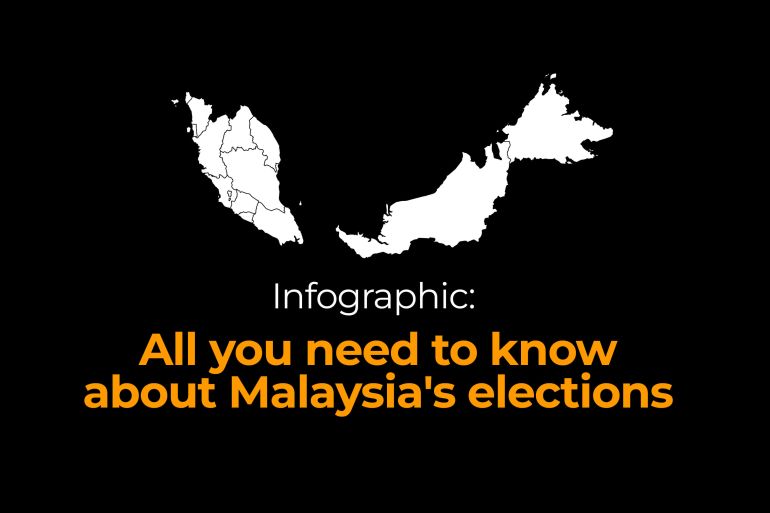
More than 21 million people will have the chance to vote in Malaysia’s 15th general election when polling stations open on Saturday.
The economy and rising cost of living are among voters’ top concerns but Malaysians are also frustrated at continued in-fighting among politicians, which led to the collapse of the previous elected government.
Keep reading
list of 3 itemsCampaigning kicks off for Malaysia’s November 19 general election
As Malaysia prepares for an election, refugees watch warily
Adding to the election’s unpredictability, millions of new voters have also joined the electoral roll after the law was changed to give people the vote once they turn 18 and introduce automatic voter registration. These votes will be key, along with those of the ethnic Malays who make up a majority of the population but whose political allegiances are in flux.
Malaysia is a federation made up of 13 states – two of them on the island of Borneo – and three federal territories.
Representatives are elected directly to parliament by a simple majority. The party or coalition with the most seats forms the government and its leader usually becomes the prime minister.
In conjunction with the federal election, certain states are also holding elections for state assemblies.

Compared with the last election in 2018, there has been an increase of about six million eligible voters.
Nearly 1.4 million voters are between the ages of 18 and 20.
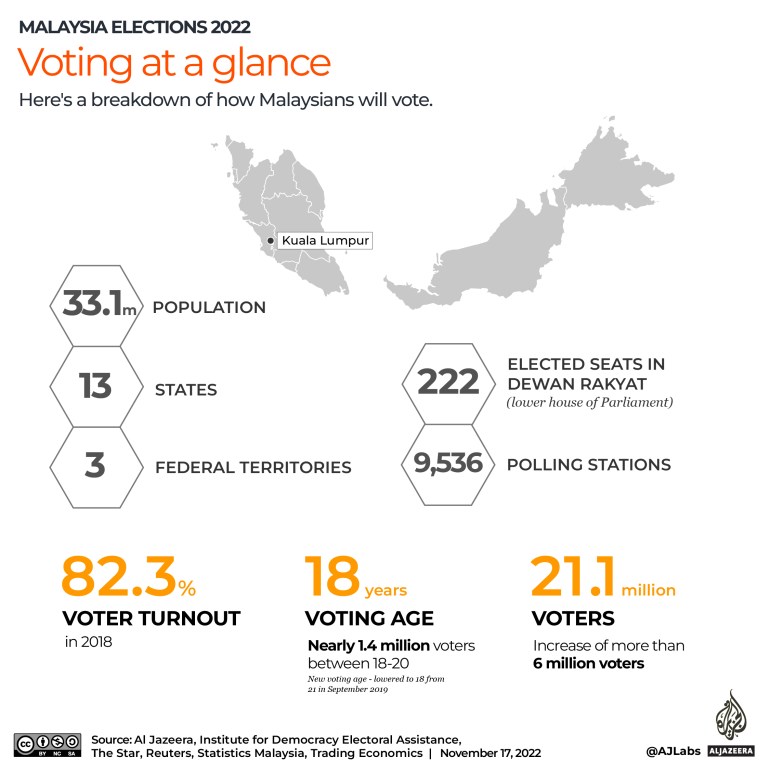
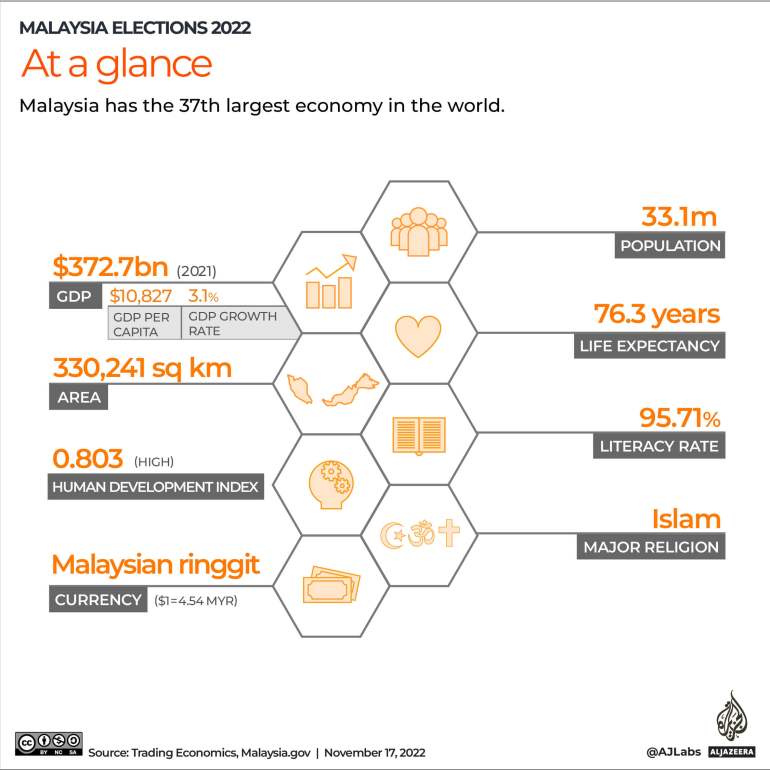
Voting is not compulsory, and the turnout fluctuates.
In the 2018 polls, 82.3 percent of nearly 15 million voters cast their ballots – one of the highest turnouts in Malaysia’s history.
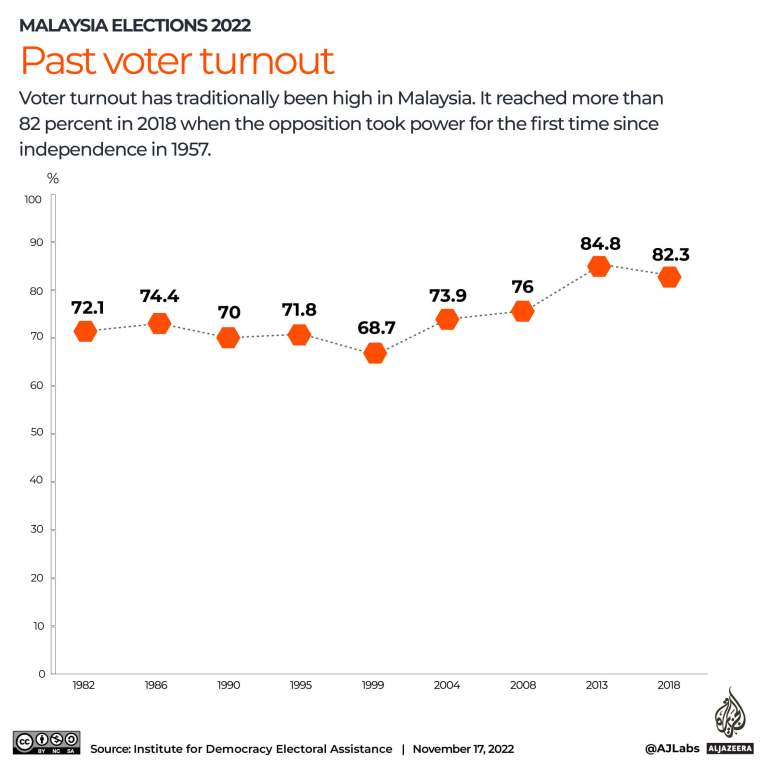
Malaysia has a diverse multiethnic population which plays an important role in the political landscape.
Some parties cater to particular ethnicities, forming coalitions to widen their appeal across the electorate. In recent years, more multiracial parties have emerged.
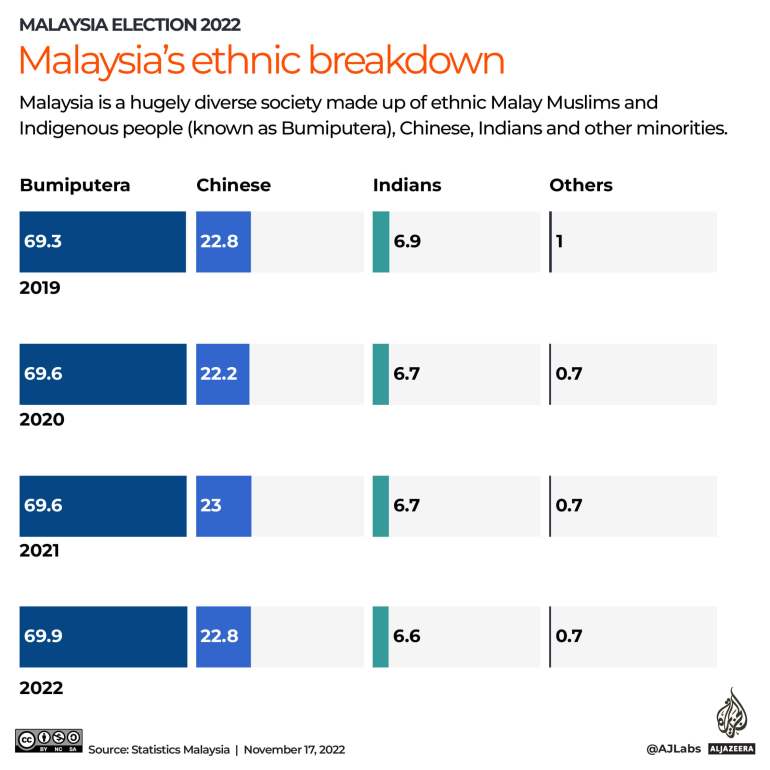
Main candidates
Malaysia has had three prime ministers since the last election.
There are three main coalitions: Barisan Nasional (BN), Pakatan Harapan, which won the 2018 election but collapsed amid jostling for power and Perikatan Nasional (PN). The last government under Prime Minister Ismail Sabri Yaakob was led by BN but included ministers from the Islamic party PAS, which is currently aligned with PN.
Barisan Nasional is dominated by the United Malays National Organisation (UMNO), a Malay nationalist party that aims to prioritise the interests of the ethnic Malay majority.
The alliance, which includes ethnic-Chinese and Indian minorities, governed Malaysia for six decades before it lost power for the first time in 2018 amid public anger over the scandal at state fund 1MDB.
Pakatan is a multi-ethnic coalition led by the reformist party, Keadilan. It won the 2018 election under the leadership of former Prime Minister Mahathir Mohamad but lost power two years later due to infighting. Anwar Ibrahim currently leads the alliance.
The third coalition arose out of the collapse of the Pakatan government and manoeuvring among ethnic Malay politicians. It includes Bersatu, a party founded by Mahathir and its current President Muhyiddin Yassin, PAS and Gerakan, a multiracial party established more than 50 years ago.
Mahathir has now founded another party – Pejuang – and leads a coalition of ethnic Malay parties.
All the coalitions reach out to parties in the Borneo states of Sabah and Sarawak.
Muhyiddin Yassin, 75
Bersatu president
Muhyiddin has represented the constituency of Pagoh in the southern state of Johor since 1978, first with UMNO and more recently with Bersatu.
Prime minister from 2020 until 2021, he championed his record during the COVID-19 pandemic on the campaign trail, although at the time he was criticised for the hardship caused by prolonged lockdowns and border closures, as well as his attempts to declare an emergency that would have suspended parliament.
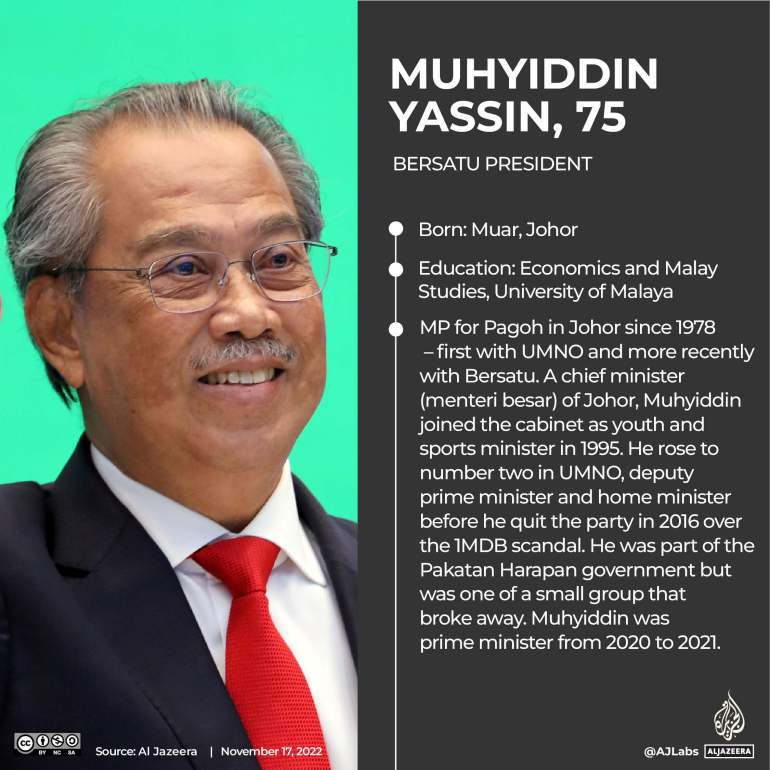
Ismail Sabri Yaakob, 62
UMNO vice president
Ismail Sabri has been a member of parliament since 2004 when he was elected to represent the newly-created seat of Bera.
He became prime minister in 2021 after Muhyiddin resigned.
He said he called the election to give the people a chance to choose their government and restore “stability”. As UMNO’s vice president he is not the party’s leader – that role is held by Ahmad Zahid Hamidi who is on trial for corruption.
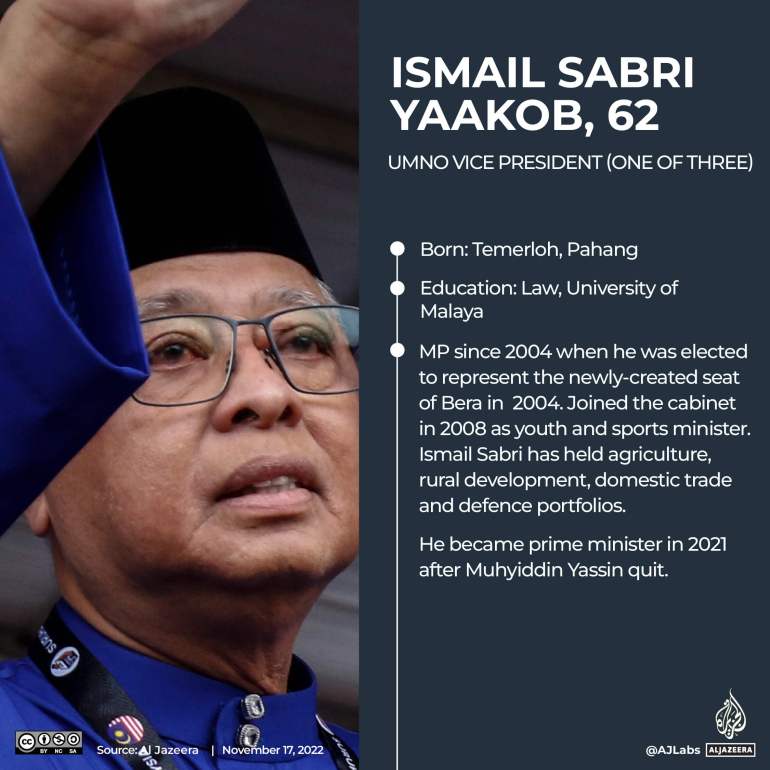
Anwar Ibrahim, 75
Keadilan president
Anwar began his political career as a student before joining UMNO, where he rose to become deputy prime minister and finance minister.
His sudden sacking in 1998 sparked mass street protests and calls for reform. Accused of sodomy and jailed twice before eventually being pardoned, he returned to parliament in 2018.
